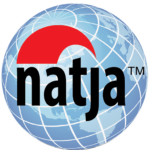David Lee Drotar’s journalism and photography focuses on nature, environmental and cultural issues and his work has appeared in USA Today, New York Daily News, New York Post, Toronto Globe & Mail, New Orleans Times-Picayune and many other daily newspapers, magazines and online venues. He is also the author of seven published books including Steep Passages: A World-wide Eco-adventurer Unlocks Nature’s Spiritual Truths. His Mideast story “Nomadic Voices” appearing in Perceptive Travel was awarded the 2016 Excellence in Journalism Award from the International Food, Wine & Travel Writers Association.
1. What got you in to travel writing?
I work in several genres and have published 7 books and hundreds of pieces in newspapers, magazines and online. I became interested in travel and found that the literary journalism format worked well for me. I was able to use a strong narrative voice while conveying a central theme from the trip.
My career choices also had roots back in my college days, inclucing a specific class and professor . Dr. Helen Buckley Simkiewicz’s class on children’s literature (and a follow-up advanced level class on writing children’s literature) sparked my interest in writing and the children’s book genre, in particular.
I majored in biology and chemistry and developed a strong interest in environmental issues. Soon I found myself writing about nature and the outdoors in many of my stories.
2. What’s the most challenging part of being a travel journalist for you?
Aside from the craft of writing a good story in a limited amount of time, I think the most challenging part of being a travel journalist is the shrinking of markets and de-valuing of travel literature in general. During the hey day of all the newspaper travel sections, I was published on the front page of essentially all the major newspapers in the U.S. and Canada, and getting cold calls from PR firms begging me to go on trips.
3. What is one thing [equipment or personal item] you can’t go without on the road?
Without a doubt, I can’t be without a pocket notebook within arm’s reach at all times. Once I took a trip to Costa Rica that was simply going to be a vacation. I didn’t pack the obligatory notebook that I always take on travel assignments for recording names, correct spellings and unformed ideas along the way. But somehow I can’t NOT think about stories wherever I am. I got an idea for a piece and couldn’t shake the nagging feeling of what a compelling article it would make. I was tearing off scraps of paper from brochures and maps, and jotting down notes in the free margins. Reassembling these fragments after I got home was quite a challenge.
4. What’s your most unusual and/or memorable travel experience?
This one’s easy. Having my passport stolen and the rental car breaking down in Sicily. Not one to pass up good story material, I ended up writing about it in “My Very Bad Italian Day” (https://www.perceptivetravel.com/issues/1117/italy.html).
5. How did you learn about NATJA, and why did you join?
I learned about NATJA from my friend and colleague Jackie Craven who has been a member for a long time. I had been inspired by her pioneering work in travel journalism for the Providence Journal. Her stories captured the essence of a place in narratives that you couldn’t put down. I am also a member of IFWTWA, but Jackie thought the approach that NATJA took was significantly different and worth the membership in two organizations.
6. What is the best piece of advice you could give to a rookie travel journalist?
I would say, think about why you are at a specific location. Start with a paragraph describing a scene that is meaningful to you. Here’s a paragraph from my Jordan story that I think captures the essence of the desert and its people:
At sunset, I finally shook the sand out of my keffiyeh while a juvenile raven’s cries of hunger echoed through the barren, Mars-like landscape. We soon satisfied our own hunger with a zarb dinner of lamb and potatoes cooked in coals buried in the sand. The stars appeared and grew brighter as the campfire grew dimmer, but eventually I shuffled into my tent with a sense of the freedom that I suspected only the Bedouins truly knew.






